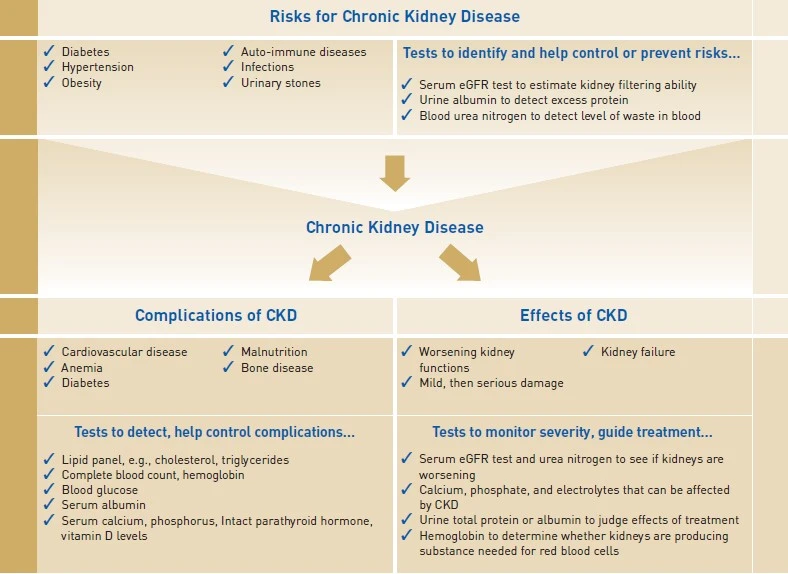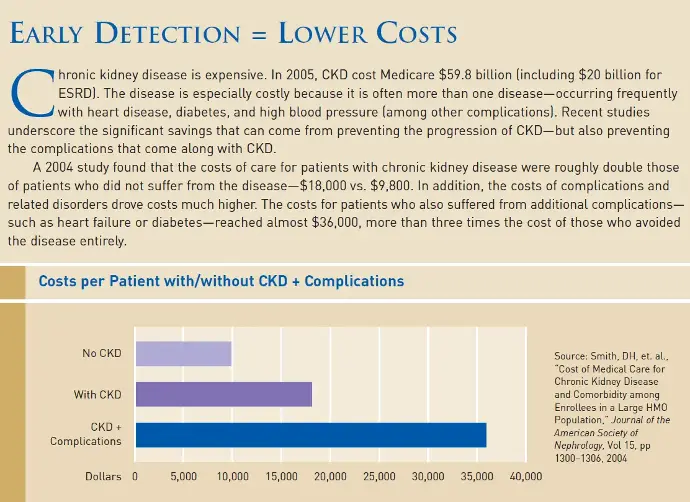
Chronic kidney disease (CKD) silently affects millions globally, posing significant health risks. However, proactive measures such as early detection and treatment can significantly alter its trajectory, potentially saving lives. This article delves into CKD, its symptoms, the pivotal role of early detection, and the imperative need for routine testing.
Understanding Chronic Kidney Disease:
The kidneys, crucial for filtering waste from the blood, sustain irreversible damage in CKD. Gradual deterioration compromises their ability to eliminate toxins, leading to systemic repercussions.
Symptoms of CKD:
CKD often manifests silently, with symptoms becoming apparent only in advanced stages. These may include fatigue, muscle cramps, swelling, dry skin, frequent urination, cognitive difficulties, hypertension, loss of appetite, and sleep disturbances.

Early Detection is Paramount:
Early diagnosis via simple tests like Estimated Glomerular Filtration Rate (eGFR) and urine albumin test offers a lifeline. eGFR assesses filtration efficiency, while the urine albumin test detects protein levels indicative of kidney damage.

Who is Vulnerable?
CKD risks are heightened by factors such as diabetes, hypertension, familial predisposition, obesity, autoimmune disorders, and recurrent urinary tract infections.
Routine Testing: A Crucial Step:
Those at risk should prioritize regular blood and urine screenings. Timely intervention not only mitigates CKD progression but also offsets exorbitant healthcare expenses in the long run.

Additional Considerations:
CKD's financial toll cannot be overstated. Early intervention can alleviate the substantial economic burden associated with its management. Furthermore, certain ethnicities face disproportionate CKD risks, warranting tailored preventive strategies. Lifestyle modifications, including dietary adjustments, regular exercise, and blood pressure regulation, complement medical interventions in CKD management.
Call to Action:
If CKD concerns arise, proactive consultation with healthcare providers is indispensable. Early detection and comprehensive management strategies are pivotal in navigating this chronic condition and preserving quality of life.
In essence, CKD underscores the critical nexus between awareness, early intervention, and improved clinical outcomes. Let us prioritize vigilance and proactive healthcare measures to mitigate the impact of this pervasive ailment.
For further details, please see this explainer video: